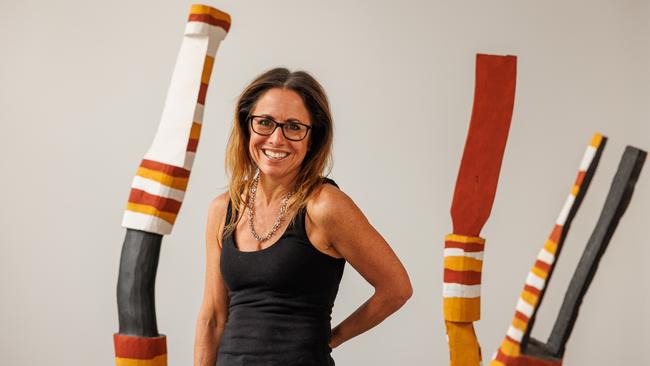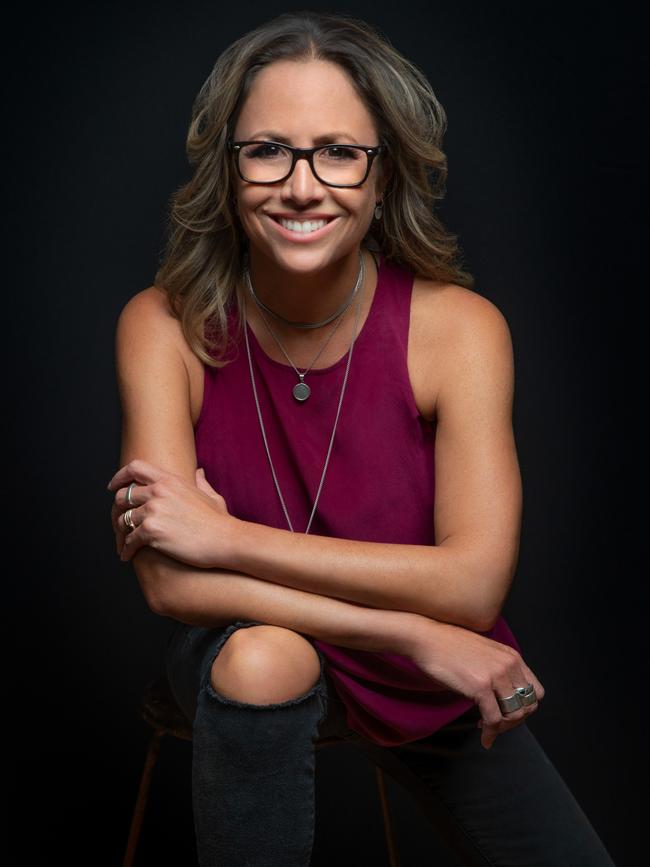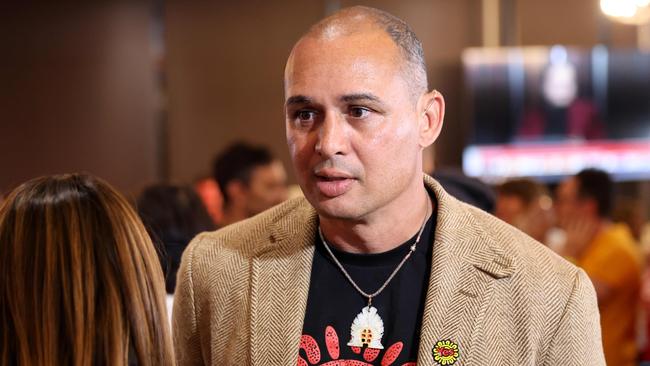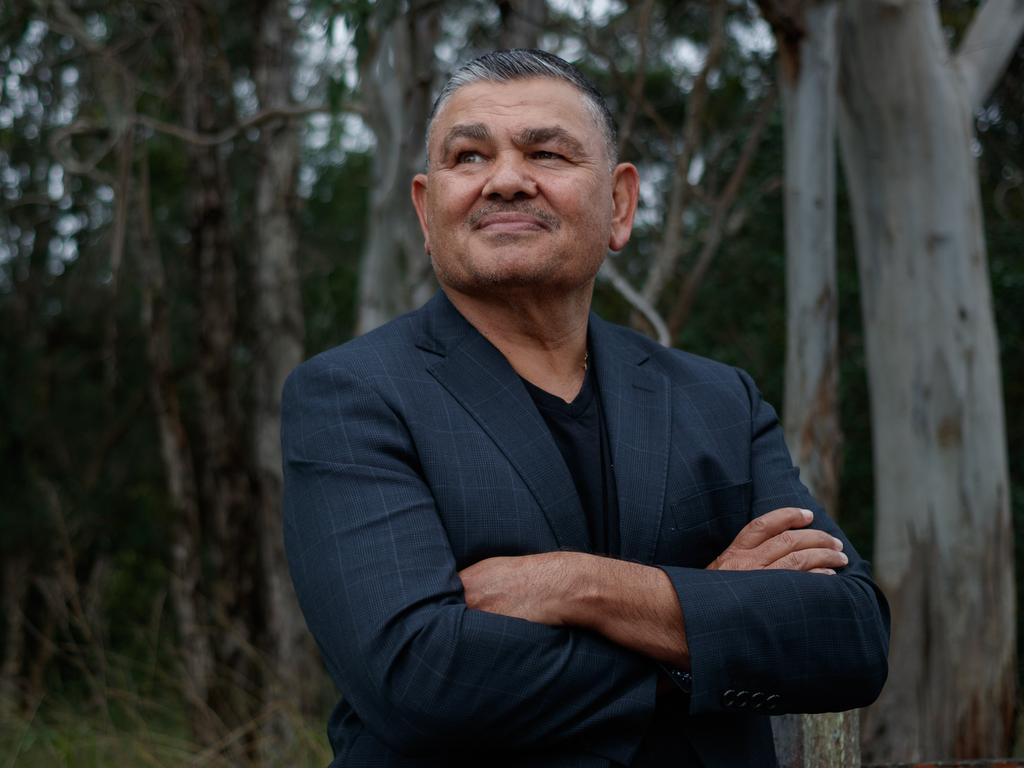National Museum of Australia boss Clare Wright raps ‘forgetfulness’ over First Nations stories
National Museum of Australia Council chair Clare Wright has challenged the status of Gallipoli in our history, arguing Indigenous history has been unfairly marginalised in favour of the Anzac legend.

La Trobe University history professor Clare Wright, the chair of the National Museum of Australia Council, has argued Anzac history and memorials have been intentionally promoted to the neglect of First Nations history, reinforcing a national and selective “cult of forgetfulness”.
The author of a literary trilogy chronicling Australian democracy has said Australians are trained to recognise “the military valour of certain soldiers in certain wars” while Indigenous frontier conflicts remained neglected at national institutions such as the Australian War Memorial.
“(We) have a kind of cult of forgetfulness, on the one hand, about what had happened to our First Nations people and the way the nation had been settled,” Professor Wright said before an audience at Sydney Writers’ Festival.
“But then on the other hand, to be told that Australia’s true national identity, and the birth of the nation happened at Gallipoli – which is empirically incorrect on so many levels – there’s a kind of brainwashing there.
“There was a very highly funded brainwashing (campaign), and then we’re told that through our memorials and other commemorative practices.”
Professor Wright ascribed this “brainwashing” in part to mammoth spending on the centenary of WWI, beginning under the Howard government.
“Australians are told every year … lest we forget. We’ve actually been trained as Australians to remember, but we’ve been told what we’re supposed to remember, which is the military valour of certain soldiers in certain wars,” she said.
“We have not been encouraged to see the frontier wars as wars for our country. The War Memorial will not tell that story.


“Historiographically, we’ve had this stream of our memory absolutely focused on military achievements. We’ve had funding that’s gone towards that.
“Very specifically, (former prime minister John) Howard funded the whole centenary of WWI, and promoted the idea of the Diggers. Australians paid out of our taxes more money per dead Digger in the centenary of WWI commemorations than any other country around the world.
“There was also a timing issue there. It was around the time of sending people into Iraq and Afghanistan.”
Professor Wright was among the 83 signatories of an open letter opposing the $498m expansion of the Australian War Memorial in 2019, before her tenure with the National Museum.
The expansion has proved controversial due to its impact on existing heritage at the site, the hefty funding agreement and lack of prominence provided to Frontier War veterans and the mass slaughter of Indigenous Australians.
“The Australian War Memorial’s $498m extensions should not proceed. They cannot be justified, they show the Memorial is being given preference over other national institutions, and the money could be better spent,” the letter reads.
“The Memorial director, Dr Brendan Nelson, touts the Memorial as telling ‘our story’. The Memorial should be revered, but Australia has many stories, and Dr Nelson’s excessive veneration of the Anzac story denies the richness of our history.”
The renovated memorial will feature a small section on “frontier violence”.
“In September 2022, the Council of the Australian War committed to expand the depiction and presentation of frontier wars in the memorial’s galleries,” a spokesperson for the Australian War Memorial said.
“The presence of frontier violence in the Memorial’s galleries has been in place since the 1980s, including in the previous Colonial galleries.
“This gallery has been removed temporarily due to construction works for the development project and will be reinstated in 2028 as the Pre-1914 gallery.”

Speaking to The Australian, Professor Wright said interest in Indigenous history had bloomed as the voice referendum collapsed.
“I think that the interest in First Nations history has picked up since the referendum in much the same way as we saw happen after Black Lives Matter, after the killing of George Floyd, there was an enormous uptick in interest in African-American history in America,” she said. “People are generally quite ill-educated about our First Nations history. (There is) the idea that we are not sufficiently celebrating the nation’s achievements by having too much emphasis on the pain and the brutality of the past, but at the same time there clearly needs to be more evidence-based scholarship.
“The (National) Museum (of Australia) has an enormous role to play in that much broader … communication and understanding.”
Speaking opposite Professor Wright at the writers’ festival was Indigenous activist Thomas Mayo, who echoed her observation of renewed interest in Indigenous literature in his own interview with The Australian.
“It’s been a phenomenon that goes back before the referendum,” he said. “The publishing industry in general (has realised) that there is this appetite in the market and we’ve seen a lot more Indigenous authors since that time.
“Young Australians are learning a lot more about it at school, and they’re talking about it at home.”







To join the conversation, please log in. Don't have an account? Register
Join the conversation, you are commenting as Logout